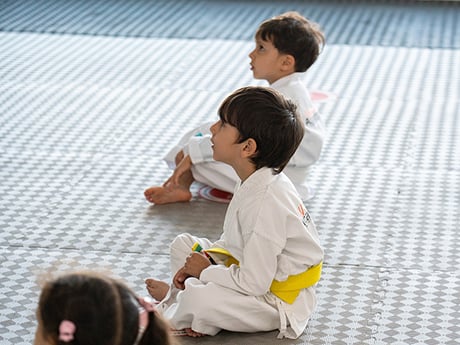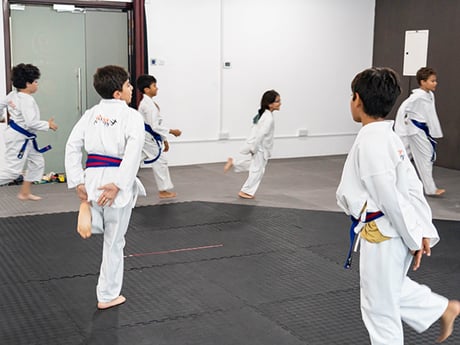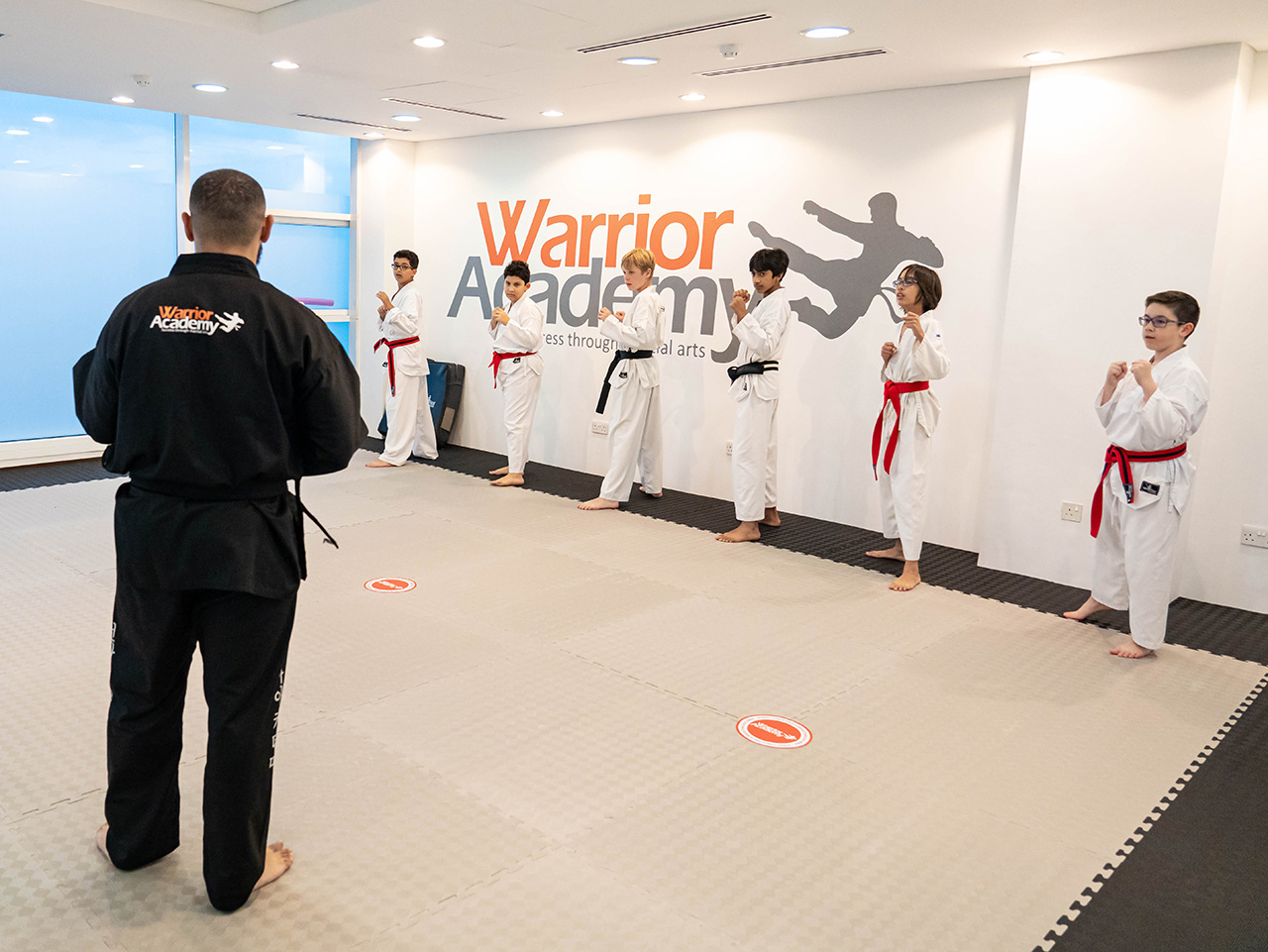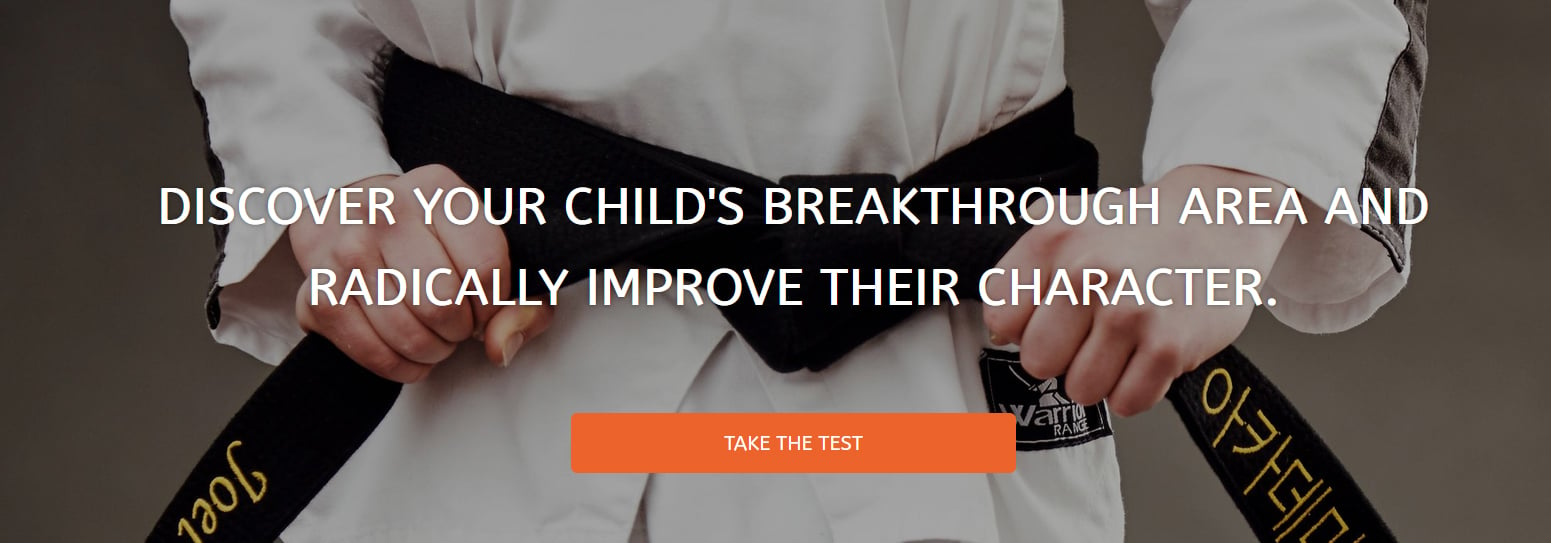As parents and guardians, we want our children to thrive and achieve their full potential in every aspect of life. But for children with Attention Deficit Hyperactivity Disorder (ADHD), it can be difficult to keep up with the demands of school, social life, and other activities. This is where martial arts training can be a game-changer. In this article, we'll explore the benefits of martial arts training for children with ADHD, and how it can improve their focus and self-discipline.
ADHD, or Attention Deficit Hyperactivity Disorder, is a neurodevelopmental disorder that affects millions of children worldwide. Children with ADHD may have difficulty with focus, attention, and self-control, making it challenging for them to succeed academically, socially, and personally. According to the Centers for Disease Control and Prevention (CDC), approximately 6.1 million children in the United States between the ages of 2 and 17 have been diagnosed with ADHD.
Martial arts training is a physical and mental discipline that has been used for centuries to improve physical fitness, mental focus, and self-discipline. Many parents and guardians have turned to martial arts as a way to help their children with ADHD improve their focus, attention, and self-control. This is because martial arts training provides structure, discipline, and a sense of accomplishment, which can be particularly beneficial for children with ADHD not only in managing ADHD but also in Character Development
The benefits of martial arts training for children with ADHD can be extensive, ranging from improved focus and attention to better self-discipline and physical fitness. Here are some of the specific ways that martial arts training can help children with ADHD:
Improved Focus and Attention
 The role of martial arts in improving focus and attention
The role of martial arts in improving focus and attention
Specific techniques used in martial arts training
Martial arts training emphasizes mental focus and concentration, which can be particularly beneficial for children with ADHD who struggle with attention and focus. Many martial arts styles, such as karate, taekwondo, and judo, involve repetitive movements and patterns, which can help children with ADHD develop a sense of routine and structure. In addition, martial arts training often involves specific breathing techniques and meditation, which can help children with ADHD calm their minds and improve their ability to focus.
Better Self-Discipline
How martial arts training can promote self-discipline
Examples of self-discipline in martial arts
Self-discipline is a critical skill for children with ADHD, as it can help them control impulsive behavior and make better decisions. Martial arts training for children with ADHD promotes self-discipline by emphasizing the importance of respect, discipline, and responsibility. Children learn to follow rules, set goals, and work towards achieving those goals through hard work and dedication. In addition, martial arts training involves specific techniques, such as blocking and striking, which require a high level of control and discipline.
Increased Physical Activity
 The importance of physical activity for children with ADHD
The importance of physical activity for children with ADHD
How martial arts training can provide a structured form of physical activity
Physical activity is essential for children with ADHD, as it can help them burn off excess energy and improve their ability to focus. However, many children with ADHD may struggle to participate in team sports due to their impulsivity and difficulty with following rules. Martial arts training provides a structured form of physical activity that can be particularly beneficial for children with ADHD. The structured nature of martial arts training for children with ADHD can help them to learn to control their movements and impulses while also improving their physical fitness and coordination.
Social and Emotional Benefits
The social and emotional benefits of martial arts training for children with ADHD
- Sense of belonging
- Improved self-esteem and confidence
- Reduced stress and anxiety
In addition to the physical and mental benefits of martial arts training, there are also social and emotional benefits. Children with ADHD may struggle with social interactions and have lower self-esteem and confidence than their peers. Martial arts training can provide a sense of belonging and community, as well as opportunities to develop social skills and make friends. Additionally, martial arts training can help reduce stress and anxiety, which are common challenges for children with ADHD.
Choosing the Right Martial Arts Programme
Factors to consider when choosing a martial arts programme for a child with ADHD
- Teaching style and philosophy
- Class size and structure
- Instructor experience and qualifications
When choosing a martial arts programme for a child with ADHD, it's essential to consider factors such as teaching style and philosophy, class size and structure, and instructor experience and qualifications. It's crucial to find a programme that emphasizes structure, discipline, and individual attention, as well as one that can accommodate the unique needs of children with ADHD.
Conclusion
Martial arts training can be a valuable tool for helping children with ADHD improve their focus, self-discipline, physical fitness, and social and emotional well-being. By providing structure, routine, and a sense of accomplishment, martial arts training for children with ADHD can help them learn to control their impulses and develop critical life skills. If you're considering martial arts training for your child with ADHD, be sure to choose a programme that is tailored to their needs and offers a supportive and positive learning environment.
FAQs
Is martial arts training safe for children with ADHD?
Yes, martial arts training for children with ADHD is safe. However, it's essential to choose a programme that can accommodate the unique needs of children with ADHD and provide a safe and supportive learning environment.
How often should my child with ADHD participate in martial arts training?
The frequency of martial arts training will depend on the specific programme and the individual needs of your child. Some programmes may offer classes several times a week, while others may only meet once or twice a week.
Will martial arts training cure my child's ADHD?
No, martial arts training will not cure ADHD. However, it can be a helpful tool for managing symptoms and improving focus, self-discipline, and physical fitness.
What types of martial arts are best for children with ADHD?
There is no one-size-fits-all answer to this question, as the best type of martial arts will depend on the individual needs and preferences of your child. Some popular options for children with ADHD include karate, taekwondo, and judo.
How can I find a martial arts programme for my child with ADHD?
You can start by researching local martial arts programmes and looking for those that offer classes specifically for children or that have experience working with children with ADHD. It's also a good idea to visit the programme and observe a class before enrolling your child.
To learn more about what area of your child's life needs the most support, take our Breakthrough Area Assessment by clicking the link below.


